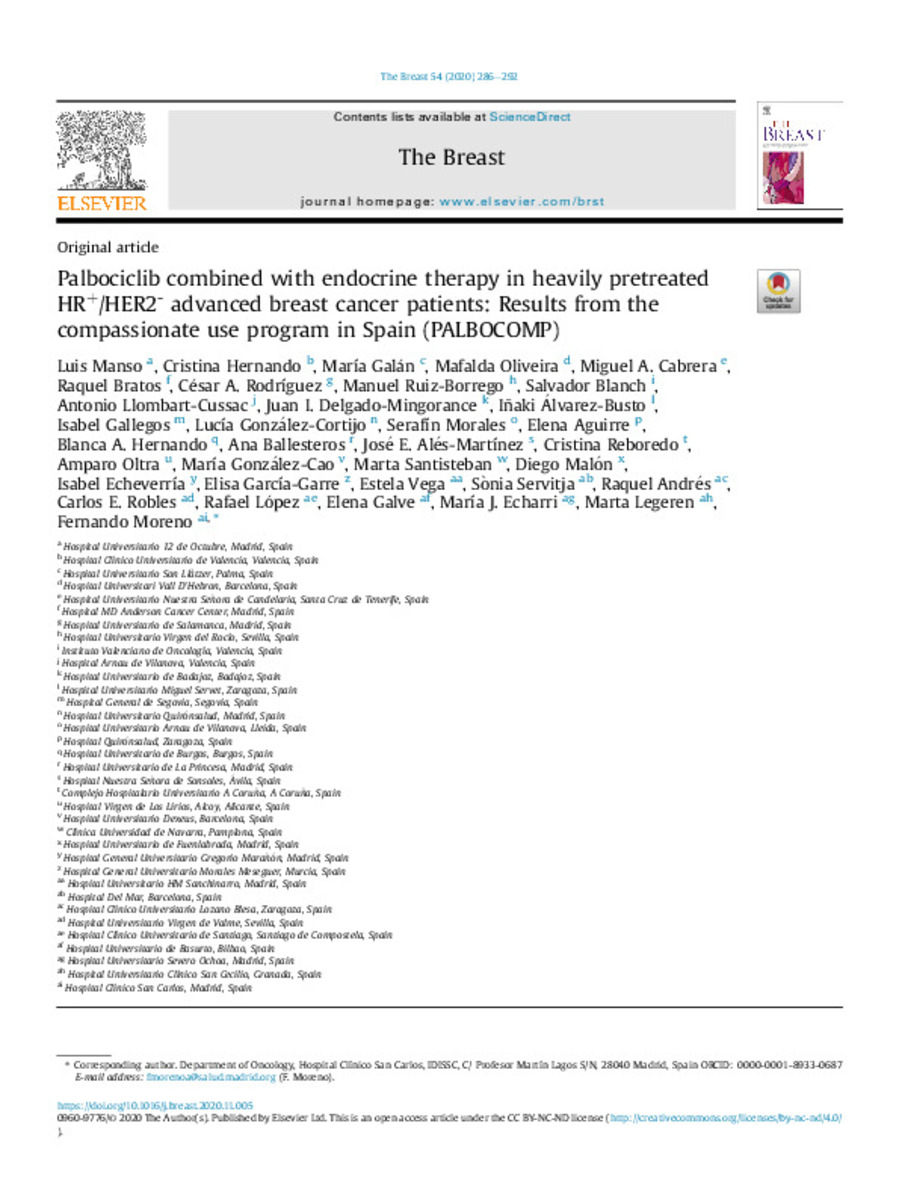Palbociclib combined with endocrine therapy in heavily pretreated HR+/HER2(-) advanced breast cancer patients: Results from the compassionate use program in Spain (PALBOCOMP)
Keywords:
Advanced breast cancer
Palbociclib
CDK4/6 inhibitors
Endocrine therapy
Compassionate use program
Note:
This is an open access article under the CC BY-NC-ND license (http://creativecommons.org/licenses/by-nc-nd/4.0/).
Citation:
Manso, L. (Luis); Hernando, C. (Cristina); Galan, M. (María); et al. "Palbociclib combined with endocrine therapy in heavily pretreated HR+/HER2(-) advanced breast cancer patients: Results from the compassionate use program in Spain (PALBOCOMP)". Breast. 54 (286), 2020, 292
Statistics and impact
0 citas en

0 citas en

Items in Dadun are protected by copyright, with all rights reserved, unless otherwise indicated.







